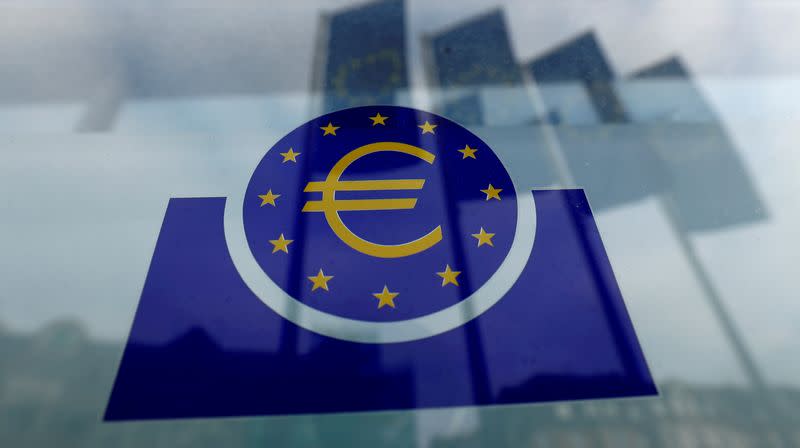ECB's strong policy response needed for next half year, Kazimir says

(Reuters) - The inflation outlook requires the European Central Bank to continue with its strong policy response, and interest rates will need to go into "restrictive" territory and stay there longer, ECB policymaker Peter Kazimir said on Monday.
"The resolve to continue resolutely will have to be maintained for at least the whole of the next six months," Kazimir, who is governor of Slovakia's central bank and a member of the ECB's Governing Council, said in an emailed statement.
"I even think that in order to tame inflation, it will not only be necessary to move (rates) into the restrictive zone, but it will be necessary to stay there much longer."
"Restrictive" territory is jargon for a level of rates that causes the economy to slow.
The ECB raised the rate it pays on bank deposits by 50 basis points to 2% last Thursday, a slowdown in the pace of tightening from 75-basis-point increases at each of the two previous meetings.
However, it stressed significant tightening remained ahead and laid out plans to drain cash from the financial system as part of its fight against runaway inflation.
Kazimir said risks for the economy were clearly downward while inflation risks were upward. He said fiscal policy was starting to add to price risks.
"The current view of future inflation, which we do not currently see on target even in 2025, forces us to proceed very vigorously, and I fully agree with that," he said.
"It is impossible to say today how high we will go with rates. Time and inflation will tell."
(Reporting by Robert Muller and Jason Hovet in Prague; Editing by Alison Williams and Susan Fenton)

 Yahoo Finance
Yahoo Finance 